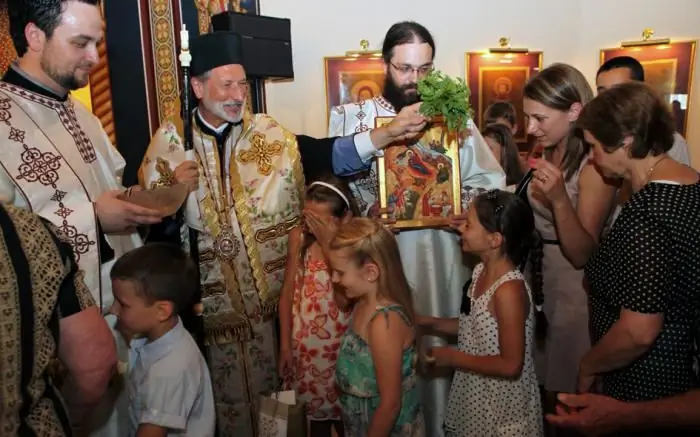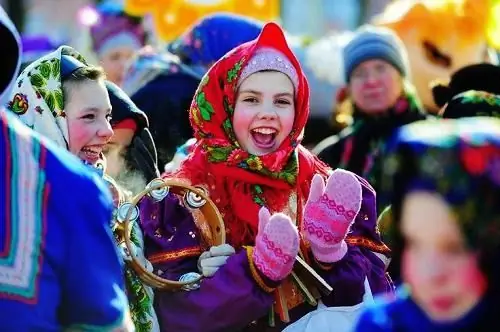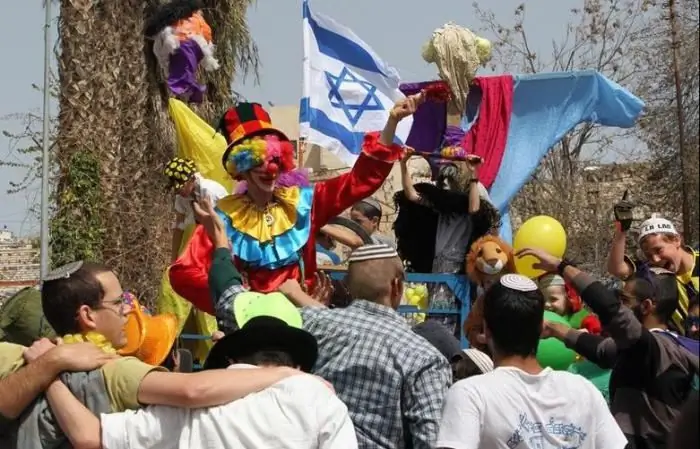2026 Author: Priscilla Miln | miln@babymagazinclub.com. Last modified: 2025-01-22 17:55:26
Radonitsa, this year celebrated on April 21, is a church holiday in Russia, and it falls on the ninth day after Easter. In addition, on this day, Russia celebrates recently introduced professional holidays - the Day of Local Self-Government Bodies and the Day of the Municipal Employee.
How believers celebrate Radonitsa
Radonitsa is the day when the remembrance of the dead is performed. Relatives and friends come to the cemetery to tidy up the graves after the winter and commemorate loved ones. According to custom, those who come bring with them colored eggs and Easter treats for the memorial meal. Part of the food is supposed to be given to the poor in memory of the soul of the deceased. In this way, relatives seem to communicate with the departed and support the belief that even after death a person remains alive in Christ. The Orthodox Church does not welcome the custom of leaving food on the grave, considering it an echo of paganism. This is especially true for products consecrated in the church. It is also considered sinful to commemorate the dead in the cemetery with alcohol.

The history of the holiday of remembrance of the dead
Celebrated this year on April 21 in Russia, Radonitsa is an ancient holiday that came to us from Slavic ancestors. Nevertheless, the Orthodox Church accepted him. During the Easter holidays, on the days of Holy and Bright Weeks, according to the church charter, memorial services are not served. The usual commemoration of the dead is allowed by the church, starting on Monday. Thomas Week - Antipascha - the first Sunday following the Easter of Christ (in the church tradition, the word "week" denotes Sunday).

The name Antipascha does not mean opposition, but only a repetition of the past holiday a week later. Fomin's day is called so in memory of the second appearance of Jesus Christ to the apostles, when Thomas, who saw him, believed in the resurrection and His divine essence. In the modern tradition, this name is given to the entire week following Easter.
The spring folk holiday - Red Hill - is timed to coincide with Fomin's Day. On this day, in the villages, young people gathered on some elevated place, already freed from snow, and began festivities: they sang songs, danced, led round dances, and arranged games. It was customary to play weddings and get married on Krasnaya Gorka. In the churches, after Lent, the sacrament of the wedding was again performed.

Celebrated by Orthodox believers on April 21, a holiday in Russia is a day off only in some regions of the country. The decision to introduce a non-working day is made at the locallevel. Officially in Russia, the day of the celebration of Radonitsa is a working day.
Professional holiday
Celebrated on April 21 in Russia, the Day of Local Self-Government Bodies, was legalized by the President of Russia in 2012.
The choice of the date for the celebrations in honor of the activities of such a significant state institution in the life of Russians is not accidental. In 1785, on this day, Empress Catherine the Second signed the City Regulations - a letter defining the rights of the population of the cities of the Russian Empire.

The main function of the City Regulations is the assignment of a single estate status to residents of Russian cities, regardless of the professional activities of citizens. The document includes 178 articles and a Manifesto. When compiling the letter, the information contained in such important state documents in force on the territory of Russia as the Guild Charter and the Charter of the Deanery, as well as some samples of legislative documents of other states, were taken into account. The letter of commendation established the law on city self-government. The understanding that a unified government of the country does not give optimal results on the ground and that it is necessary to create self-government bodies led to the emergence of the document.
In the further development of local self-government, several significant stages can be noted.
During the reign of Alexander II, elected district zemstvo and provincial assemblies arose, and then councils and dumas received the status of city governments.
BIn 1917, at the end of the February Revolution, the Provisional Government of Russia made an attempt to reform the activities of self-government bodies. The reconstruction of volost zemstvos began with a change in the rights of local self-government. The October Revolution prevented the completion of the reforms.
The Bolsheviks carried out the replacement of zemstvo and city self-government bodies with a system of councils, which led to a partial loss of autonomy and independence. All the actions of the councils took place under the control of the Communist Party. The 1936 constitution secured the centralization of the leadership system. Until the late 1980s, local government stagnated.
Modern Development of Local Government
The reform of local self-government, carried out in the 90s of the last century, and the adoption of relevant laws were reflected in the 1993 Constitution of the Russian Federation. Since that time, a new stage in the development and legal regulation of self-government begins. Today, work continues to improve the work of bodies, to expand the financial and business independence of municipalities.
April 21 is a holiday in Russia for employees of self-government bodies
Municipal staff provide local leadership and coordination. They are dedicated to the holiday celebrated on April 21 in Russia - the day of the municipal employee. The competence of employees of municipal organizations includes the resolution of local budget issues, the establishment and control of taxes and fees, the development and adoption of rules and programs for the development of local municipalities. Municipal employees are not civil servants, the election of a representative for a position in self-government bodies takes place in elections in which residents of the district take part.

How holidays are celebrated
April 21, a holiday in Russia for self-government workers, is a working day. Celebrations are organized in the cities, heads of local governments and members of the city administration congratulate municipal employees, the first persons of the government send them official congratulations.
Recommended:
State and church November holidays. Weekends in Russia in November

What associations do you have with November? Slush, cold, rains, autumn depression… But in November there are many good things! This is the last day of autumn, which means winter, snow, skiing and the New Year are coming soon! Secondly, November is full of wonderful fun holidays! What is the day of national unity worth! After all, Russia is a huge multinational country, and in every region this holiday is celebrated on a grand scale
September 10 - what is the church holiday? Holidays September 10

It is September 10, which holiday is closer to the soul, and this can be celebrated. On this day, Orthodox Christians celebrate several religious dates at once, citizens of Ukraine celebrate two of their important events
What did they do in Russia on Maslenitsa? How was Maslenitsa celebrated in Russia? History of Maslenitsa in Russia

Shrovetide is a holiday that has come to us since ancient times. This article will talk about how they celebrated Maslenitsa in Russia: rituals, customs. A bit of history and much more interesting things can be found in the text below
Church holiday Makovey: traditions. What to cook on Makovey?

What kind of poppy holiday is this? Most people know it under a different name. They know him as Honey Spas
Purim holiday - what is it? Jewish holiday Purim. History and features of the holiday

Jewish holidays for people who are not connected with the culture of this people seem to be something incomprehensible, mysterious and at the same time attractive. What are these people happy about? Why are they having so much fun? For example, the Purim holiday - what is it? From the outside, it seems that the participants in the celebration are so happy, as if they had just escaped some kind of big misfortune. And this is true, only this history is already 2500 years old

